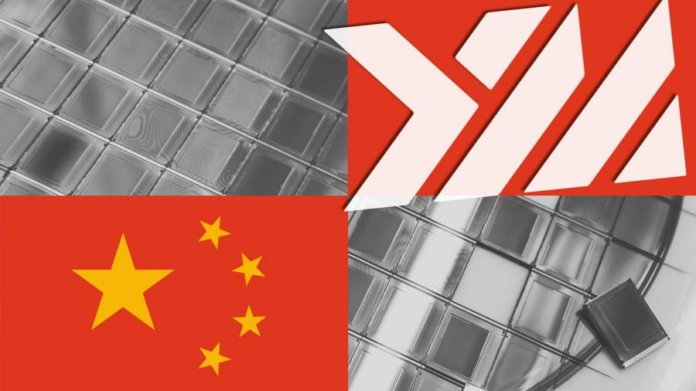Chinese chipmaker Yangtze Memory Technologies Corp has asked American employees in core tech positions to leave, as it rushes to comply with new US export controls that are disrupting the country’s chip industry.
Four people close to the company said it was unclear how many US citizens and green card holders would be forced to leave YMTC, but that several in China had already left the memory chip producer.
A senior YMTC engineer said some of the Americans were key to the company’s breakthroughs on Nand memory chip production. “But there’s no other way around [them leaving],” the person added.
The departures come as chip companies in China, US and Europe are rushing to ensure they are compliant with the tough export restrictions unveiled by Washington this month.
Leading US chip equipment suppliers Lam Research, Applied Materials and KLA Corporation have suspended sales and services to semiconductor manufacturers in China. Netherlands-based ASML has told its US staff to stop serving all Chinese customers while it assesses the sanctions.
The new rules require any US citizen or entity to seek permission from the Department of Commerce for providing support to fabrication plants, or fabs, upending a key pipeline of talent for China’s chip industry that relies in part on American engineers and scientists’ expertise to advance its tech. This includes hundreds of ethnic Chinese who were educated and trained in the US before returning to their country of birth.
YMTC’s longstanding chief executive Simon Yang, a US passport holder, stepped down from his post just ahead of the sanctions announcement, in a move two people said was triggered by Washington’s increasing pressure on the company.
Yang transformed YMTC into China’s leading memory chip producer with the backing of Rmb220bn ($30bn) in funding primarily from the government. The company was on the verge of clinching a spot for its semiconductors in Apple’s iPhone this summer until political pressure and the new US sanctions clouded its prospects.
Three YMTC employees say Yang transitioned out of the chief role in late September to become the company’s deputy chair. The latest US restrictions leave his status at the company unclear, the people said. Chinese corporate records show Yang remains at YMTC for now.
Yang and YMTC did not respond to requests for comment.
A person briefed on the turmoil at YMTC said Washington’s export controls left the company with little choice. “Asking staff to resign is necessary for the company and the right move for employees’ personal risk as well,” the person said.
Lawyers say the US commerce department is unlikely to hand out licences to bypass the rules.
“You either give up your citizenship or quit your job,” said one Chinese semiconductor executive.
A different Chinese executive at a Shanghai-based state-backed chipmaker said the company was negotiating the exit of several Americans who were unwilling to give up their US passports.
“For now we’ve asked our US staff to work from home until everyone’s situation is finalised,” the person said, noting they had also rescinded a job offer to an American passport holder.
“Now we are not just trying to build up ‘US-free’ manufacturing lines but also de-Americanise the teams,” said the executive.
Industry headhunters said the rules would cut down the pool of talent available for Chinese semiconductor companies, which are already struggling to find experienced staff.
The rules “have halved the number of available candidates for senior positions in chipmakers and toolmakers”, said a Shanghai-based headhunter, who asked not to be named.
Corporate records in China show Americans dot the top ranks of leading Chinese semiconductor manufacturers and suppliers. Wayne Dai sits atop VeriSilicon. Chonghe Yang leads memory chip designer Montage Technology.
Naturalised US citizen Gerald Yin founded the equipment supplier Advanced Micro-Fabrication Equipment (Amec) more than a decade ago. The company, one of China’s best hopes for taking on California based Lam Research, has a Rmb61bn ($8bn) market capitalisation on the Shanghai bourse.
The US export controls have led Amec’s shareholders to post questions on the company’s website message board to demand answers to whether its top American executives will be choosing their US passport or China’s semiconductor development.
An Amec representative last week posted a response, declining to answer and saying Yin and others were “normally fulfilling their duties” for now.






